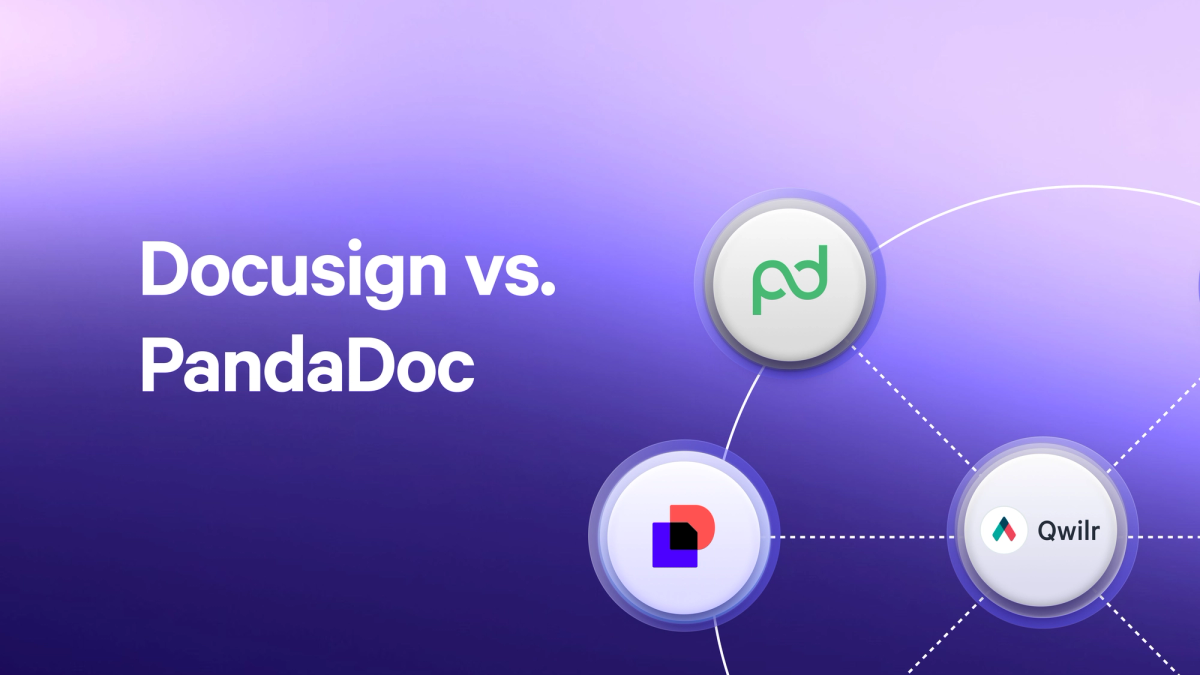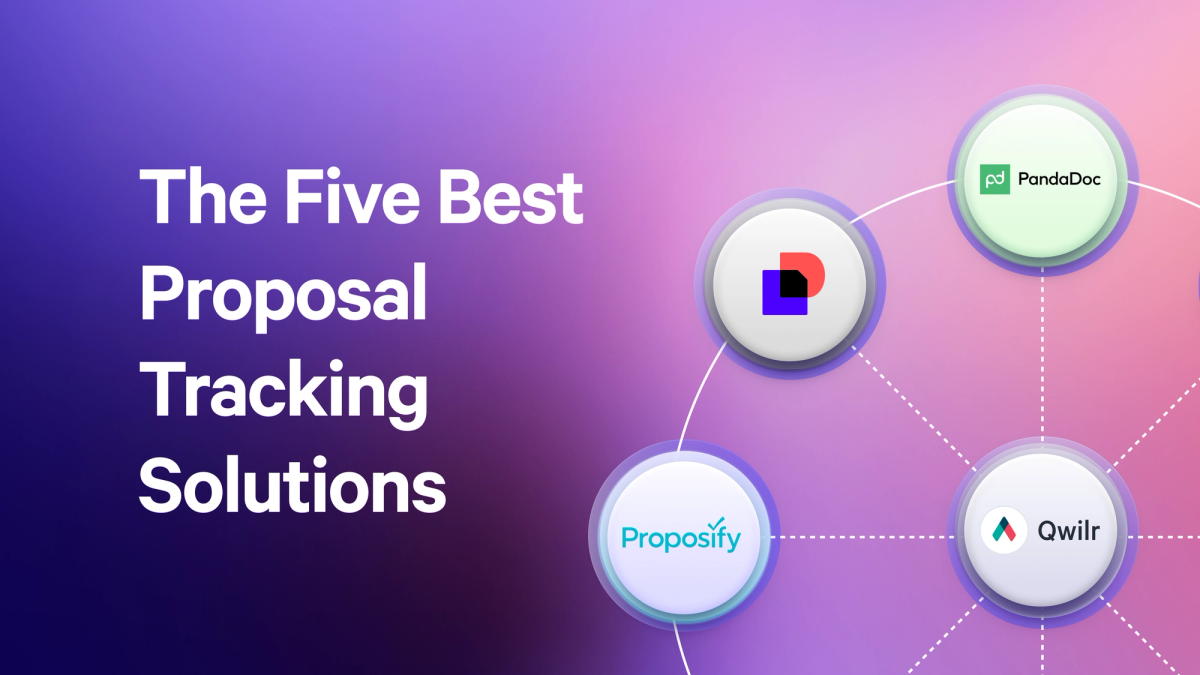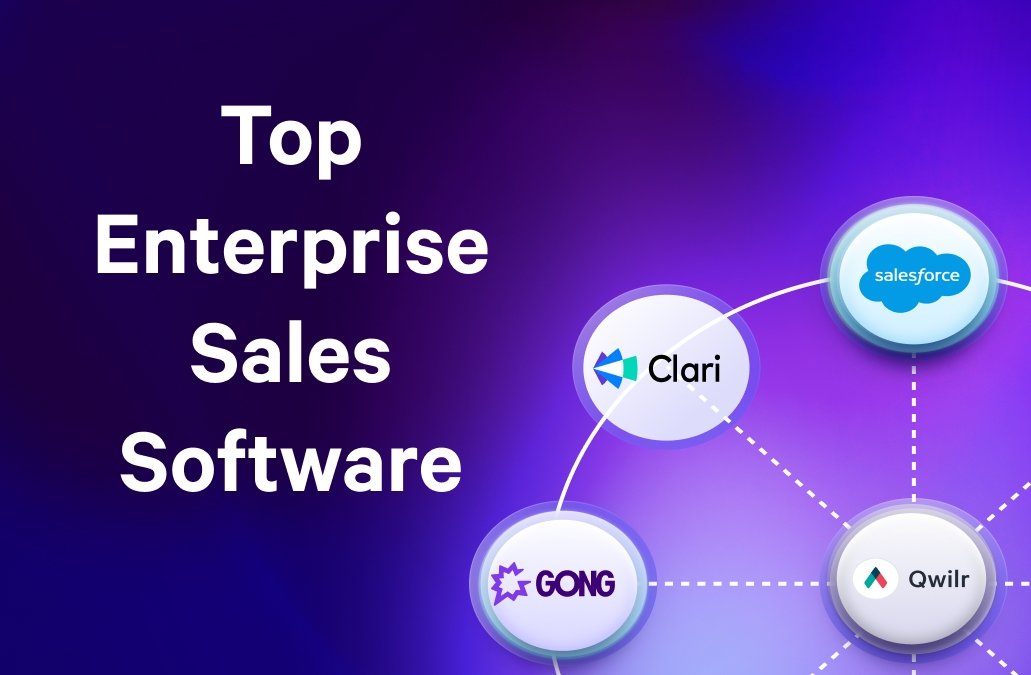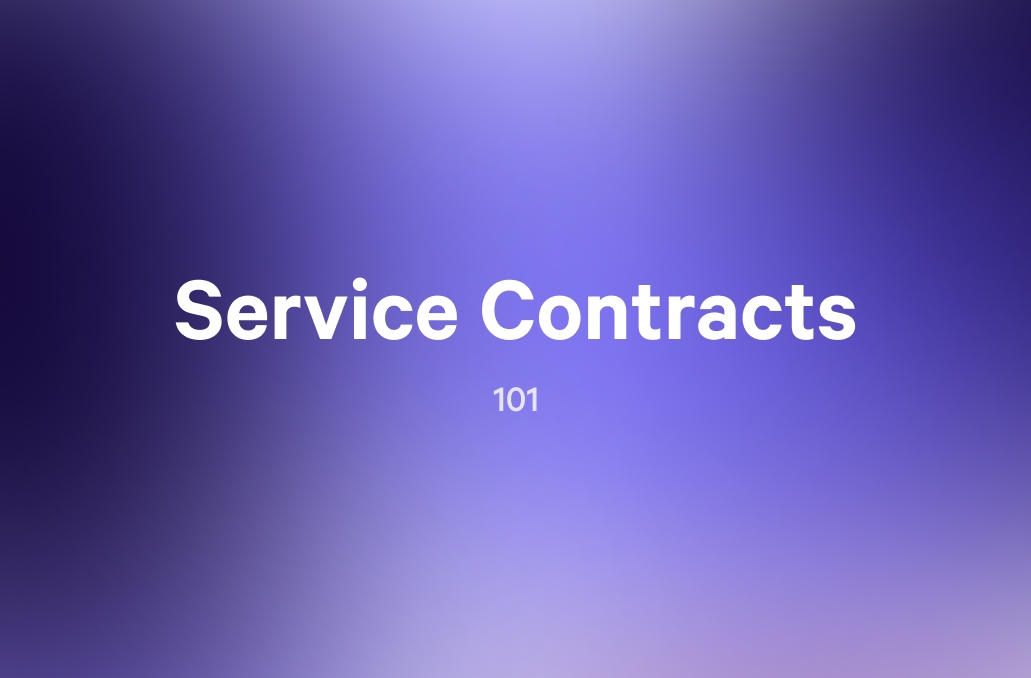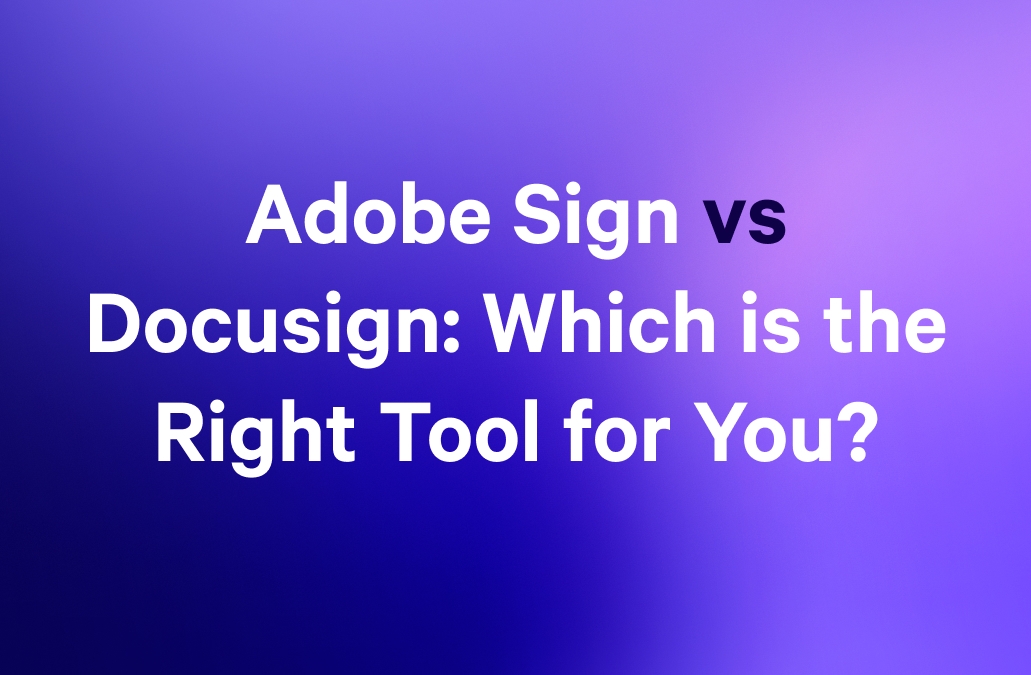Docusign, founded in 2003, dominates the e-signature market with a 56% market share. But market leadership doesn't guarantee the right fit. Docusign caps all plans at 100 envelopes annually—even at $40/month—limiting businesses closing more than 100 deals per year. Critical features like Salesforce and HubSpot integration require the premium Business Pro tier, pushing costs higher for growing teams.
E-signature capabilities have evolved beyond standalone platforms. Many proposal tools, contract management systems, and sales platforms now include signing functionality with fewer restrictions and lower costs than Docusign's $25 to $40/month range.
This guide covers ten alternatives offering strong security and compliance while addressing common Docusign frustrations: envelope limits, integration costs, and inflexible pricing. Whether you need affordable options for occasional use, unlimited sends for sales teams, or full contract lifecycle management, these platforms deliver better value for specific needs.
Key takeaways
- Docusign is only a cost-effective choice for businesses closing less than 100 deals a year.
- For smaller businesses, several other ‘CRM-lite’ platforms include e-sign functionality
- Certain use cases (for example, being tied into an existing platform ecosystem) might influence your choice of e-sign software
- Larger organizations and medium-sized businesses are best served by powerful, flexible document creation tools such as Qwilr.
Compare Docusign competitors
| E-sign Tool | Best For | Free Trial | Starting Price for Teams (USD)* | G2 Rating |
|---|---|---|---|---|
Docusign | Teams in real estate and industries requiring established e-signature reputation | ✅ | $25/month per user | 4.5/5 |
Qwilr | Sales teams needing proposals, analytics, and signatures in one platform | ✅ | $35/month per user | 4.6/5 |
Acrobat Sign | Organizations already using Adobe Creative Suite or Microsoft 365 | ✅ | $14.99/license/month | 4.4/5 |
Honeybook | Freelancers and small businesses wanting all-in-one client management | ✅ | $16/month | 4.5/5 |
signNow | Budget-conscious teams with straightforward signing workflows | ✅ | $8/month | 4.6/6 |
PandaDoc | Legal teams managing contract lifecycles with collaboration needs | ✅ | $19/month per user | 4.7/5 |
Dropbox Sign | Small teams already using Dropbox for file storage | ✅ | $15/month per user | 4.7/5 |
Juro | Enterprises handling high volumes of complex contracts | ❌ | Contact sales | 4.6/5 |
Zoho Sign | Organizations already using Zoho CRM, Books, or other Zoho applications | ✅ | $10/month per user | 4.4/5 |
OneSpan Sign | Highly regulated industries requiring enterprise-grade security and compliance | ❌ | $22/month per user | 4.7/5 |
*Price as of D 2025
Why look for a Docusign alternative?
Docusign remains the most widely recognized e-signature platform, but many teams discover operational friction once they step outside simple signing workflows. Small businesses, fast-moving sales teams, and organizations with collaborative contract processes often find Docusign’s complexity, rigidity, or cost misaligned with what they actually need. Here are the most commonly cited reasons teams explore alternatives.
1. Complexity and a steep learning curve
Docusign becomes difficult to manage when you go beyond basic signing, leading to slow onboarding and heavier ongoing maintenance. Across G2 reviews, users describe Docusign CLM as powerful but “complex to configure,” often requiring technical support or dedicated implementation partners to set up end-to-end workflows.
Even the standard interface can feel clunky for new users, particularly once templates, routing rules, or conditional fields enter the picture. For teams that only need straightforward agreements, the full CLM stack introduces unnecessary overhead that slows down adoption rather than enabling it.
2. Limited flexibility for modern, collaborative workflows
Docusign handles signatures well but lacks the real-time collaboration and dynamic editing capabilities many modern teams rely on. A 2026 reviewer noted that Docusign does not support real-time co-authoring, flexible version control, or dynamic contract editing—making negotiation cycles feel rigid compared to newer contracting platforms.
Several reviews also highlight that more advanced capabilities, like AI-driven agreement insights or lifecycle automation, require additional modules or higher-tier plans. For teams that want fluid pre-signature collaboration, shared editing, or adaptable contract workflows, this creates a fragmented and less intuitive experience.
3. Cost vs. value for small teams or low-volume senders
Capped usage is common across all kinds of sales tools and B2B software platforms. Many small organizations pay for more functionality than they need and feel constrained by Docusign’s usage limits. Capterra reviewers frequently mention envelope limits and workarounds that interrupt otherwise simple workflows.
For businesses sending only a few documents per month, the cost of Docusign’s paid plans can outweigh the actual value—especially when alternatives offer unlimited signatures or more predictable pricing. Smaller teams often find themselves subsidizing enterprise-grade capabilities they never use, prompting them to look for platforms designed for lightweight, high-speed document workflows.
Read next: Best ShareFile alternatives
Features to look for in a Docusign alternative
Docusign has built a solid reputation for security and legal compliance over two decades. Understanding the benefits of e-signatures helps you evaluate whether alternatives can match those capabilities.
For organizations with strict legal requirements—law firms managing client contracts, healthcare providers handling patient consent forms, or financial institutions processing loan agreements—Docusign's proven track record matters. Internal document workflows (HR onboarding, vendor agreements, policy acknowledgments) also work well within the 100-envelope annual cap.
But if you need an alternative that matches Docusign's security while supporting higher deal volumes, look for these core features:
- Multi-factor authentication: Verify signers through SMS codes, email verification, or ID checks to prevent unauthorized access and follow electronic signature best practices for security
- Access controls: Set who can view, sign, or share documents—plus add automatic expiration dates (like 30 days after sending) or limit total views to protect sensitive pricing and terms
- Audit trails: Automatic logs showing when each person opened, viewed, and signed documents, including timestamps and IP addresses for legal proof
- Bank-level encryption: Industry-standard AES 256-bit encryption protecting documents during storage and transfer
Pro tip: Security features protect your documents, but acceptance rates depend on how you present them. Learn what gets business proposals accepted.
The best Docusign alternative in 2026
Here’s our rundown of the best alternatives to Docusign at the moment. As well as the best overall alternative electronic signature solution, we’ve provided you with several solutions to specific niche use cases that you may also find helpful.
1. Qwilr: Best overall solution
G2 Rating: 4.6/5

Qwilr provides the same level of security, compliance, and legally binding e-signature functionality, but adds a complete document creation and proposal automation layer that Docusign doesn't offer. This makes it ideal for creating sales contracts that require both polish and legal compliance.
Instead of uploading static PDFs for signing, teams can build interactive, web-based documents and collect signatures, approvals, and payments all in one place. Qwilr also supports password protection, email verification, expiring links, view limits, and—on Enterprise—domain-level access control and the ability to filter internal views from analytics. This level of control makes Qwilr well-suited for sales, revenue, and client-facing teams that need both security and a polished document experience.
Top features
- Interactive proposals and web-based documents: Create web-based proposals, quotes, SOWs, and agreements. This eliminates Docusign’s reliance on external document creation tools.
- Real-time analytics and notifications: See when prospects open, share, or interact with your document. Qwilr provides time-on-page insights and instant view/signature alerts, whereas Docusign limits visibility to basic envelope activity.
- Seamless integrations: Connect directly with Salesforce, HubSpot, Pipedrive, Zoho CRM, Slack, and Zapier to sync proposal data, automate workflows, and trigger notifications without manual data entry
- Plain-text agreements: Create simple, print-friendly contract documents that work alongside your interactive proposals—useful when legal teams need traditional contract formats or clients want standard PDF agreements
- Legally binding e-signatures: Legally binding e-signatures: Qwilr signatures comply with ESIGN and UETA and include audit trails with timestamps, identity verification, and signer details. Learn more about whether electronic signatures are legal for your use case.
- Integrated payments: Collect payments via credit card, direct debit, bank transfer/ACH with QwilrPay.
- Branding control: Create uniform, branded documents across teams and markets. Docusign offers limited customization compared to Qwilr’s full design and layout control.
- Template library: Access 100+ templates for proposals, contracts, quotes, onboarding docs, and revenue reports, reducing time spent preparing documents for signature.
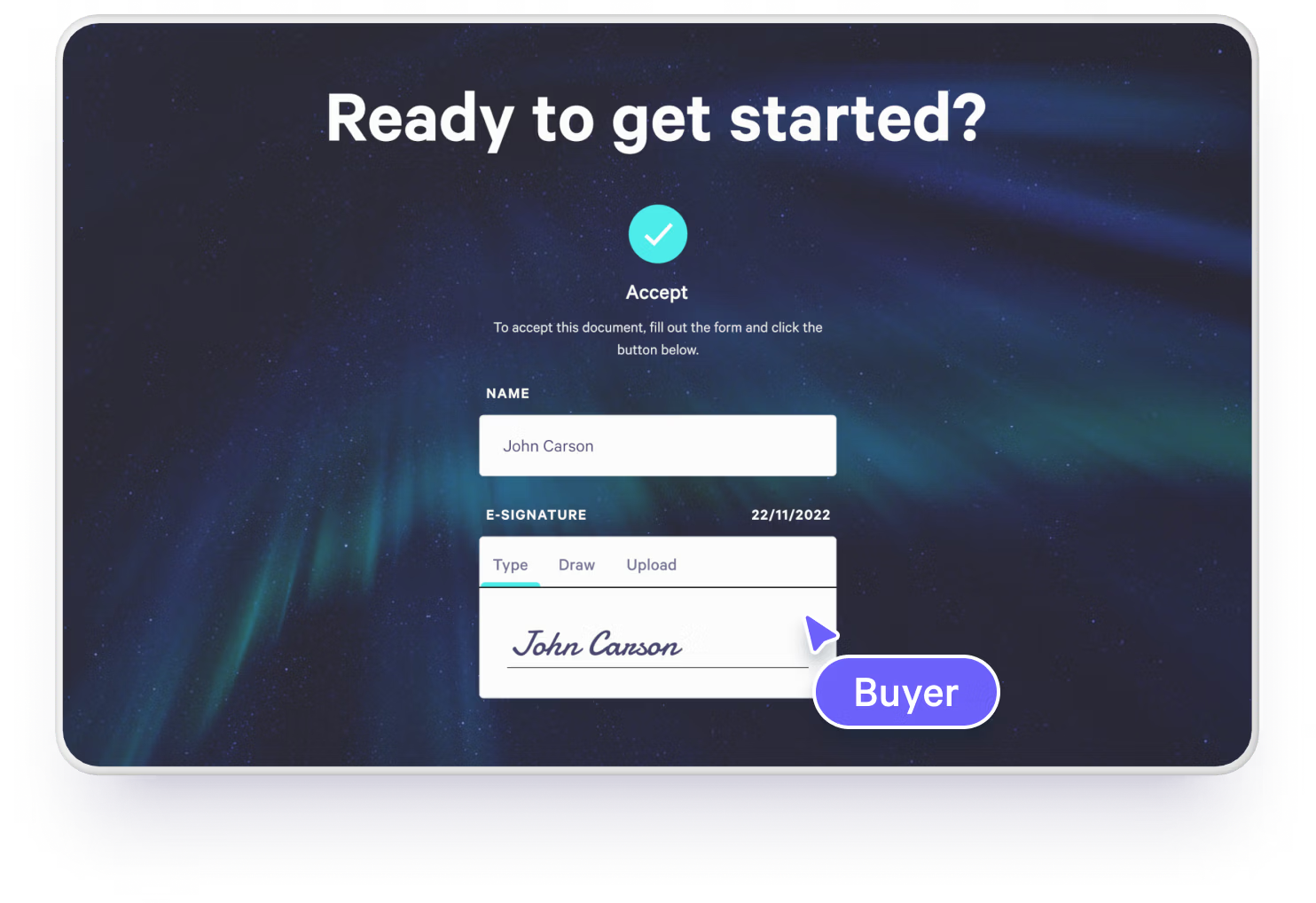
Qwilr vs. Docusign
I'd recommend Qwilr if you're a sales team closing 50+ deals annually and tired of cobbling together separate tools for proposals, quotes, and contracts. Qwilr includes everything Docusign offers for secure, compliant e-signatures, but expands the workflow to include document creation, interactive design, analytics, dynamic pricing, and payments. You don't have to jump between Canva/PowerPoint for proposal creation, then Docusign for signatures, then Stripe for payments—Qwilr handles all three in one workflow.
| Pros | Cons |
|---|---|
Creates interactive, web-based documents instead of static PDFs | Not designed for contract-heavy or compliance-led workflows |
Strong visual branding and modern client experience | No redlining features |
Built-in engagement tracking (views, time spent, interactions) |
Pricing
Take Qwilr for a test run with our 14-day free trial
- Business: $35/month per user (billed annually)
- Enterprise: $59/month per user (billed annually)
G2 reviews
“Qwilr has been a lifesaver for me. We used to have a very manual solution for proposal creation that would take upwards of 30+ minutes per proposal. Now I can create a very detailed, tailored proposal in less than 5 minutes. From the very beginning, the implementation was seamless and super easy to use. The integration with Salesforce is also super helpful. Qwilr is the tool I use most often in my day to day and I couldn't be happier with our decision to use it.” - Abby P.
“We have been using Qwilr for several years now and find it very simple to use, integrates with our Salesforce CRM smoothly. However, the best thing about my experience with Qwilr is how fantastic the support team are, very quick to respond to support emails (although often you can speak to someone on a live chat) and they are always so helpful. I am not a developer or anything of the sort (but kind of yook on the role of Admin for our Salesforce CRM and all its various API's. I only wish other platforms and services provided the kind of support that Qwilr do.” - Claire C.
2. Acrobat Sign: Best for Teams Embedded in the Adobe or Microsoft Ecosystem
G2 Rating: 4.4/5
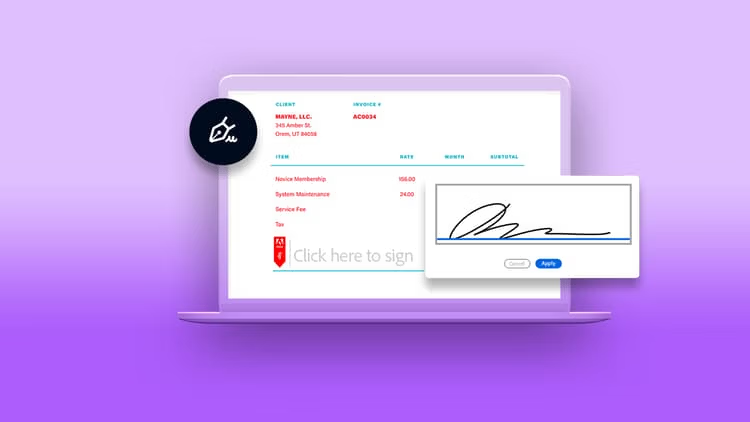
If your organization already lives inside Adobe or Microsoft tools, Adobe Acrobat Sign is often the most convenient Docusign alternative. As Microsoft’s preferred e-signature solution, Acrobat Sign integrates directly with Teams, Word, PowerPoint, Outlook, SharePoint, and Microsoft 365. You can send documents for signature, collect approvals, and track status without leaving the apps your team uses every day.
The value proposition here is workflow continuity. For companies that rely heavily on Adobe Acrobat for editing, reviewing, or maintaining PDFs, Acrobat Sign extends that workflow with secure, compliant signatures. You're already paying for Adobe Creative Cloud or Microsoft 365, so adding Acrobat Sign often feels like a natural extension rather than introducing an entirely new platform.
Top features
- Document automation: Build structured signing workflows with multi-step approvals and conditional routing.
- Compliance and security: Fully compliant with ESIGN, UETA, and eIDAS for legally binding digital and electronic signatures.
- Deep Adobe and Microsoft integrations: Sign and manage documents directly from Acrobat, Teams, Word, PowerPoint, Outlook, and SharePoint.
- Custom workflows: Tailor approval paths and role-based routing.
- Global signatures: International support with localized experiences.
Acrobat Sign vs. Docusign
I'd recommend Acrobat Sign if you're already deeply invested in Adobe Creative Suite or Microsoft 365 and primarily deal with internal document workflows—think legal departments, compliance teams, or enterprise IT managing vendor contracts. But if you're a sales team trying to create compelling client-facing proposals, Acrobat Sign's PDF-only approach will feel like a step backward.
| Pros | Cons |
|---|---|
More cost-effective than Docusign for basic e-signature needs | Less mature ecosystem for complex enterprise workflows |
Deep integration with Adobe Acrobat and PDF workflows | Fewer advanced contract lifecycle management (CLM) features |
Simple, intuitive experience for sending and signing documents | Limited customization for complex approval chains |
G2 review
“Convenient and easy to access from mobile phone implementation, great tutorial document provided by customer support to assist new users on how to use e-signature tools to digitally sign legal and invoice document, it takes less than 5 minutes to complete signing. Request a signature from the client or customer, track document delivery, and document open rate tracker notification. Using it almost every day, or at least 4-8 times a week, for contract and purchase approval. Ease of connection to integrate with Google Drive for document secure storage and the option to share documents securely by using a shareable link.” - Nadia P.
Pricing
For individuals:
- Acrobat Standard: $12.99/user/month (annual)
- Acrobat Pro: $19.99/user/month (annual)
For business:
- Acrobat Standard for Teams: $14.99/license/month (annual)
- Acrobat Pro for Teams: $23.99/license/month (annual)
3. Honeybook: Best for small businesses
G2 Rating: 4.4/4
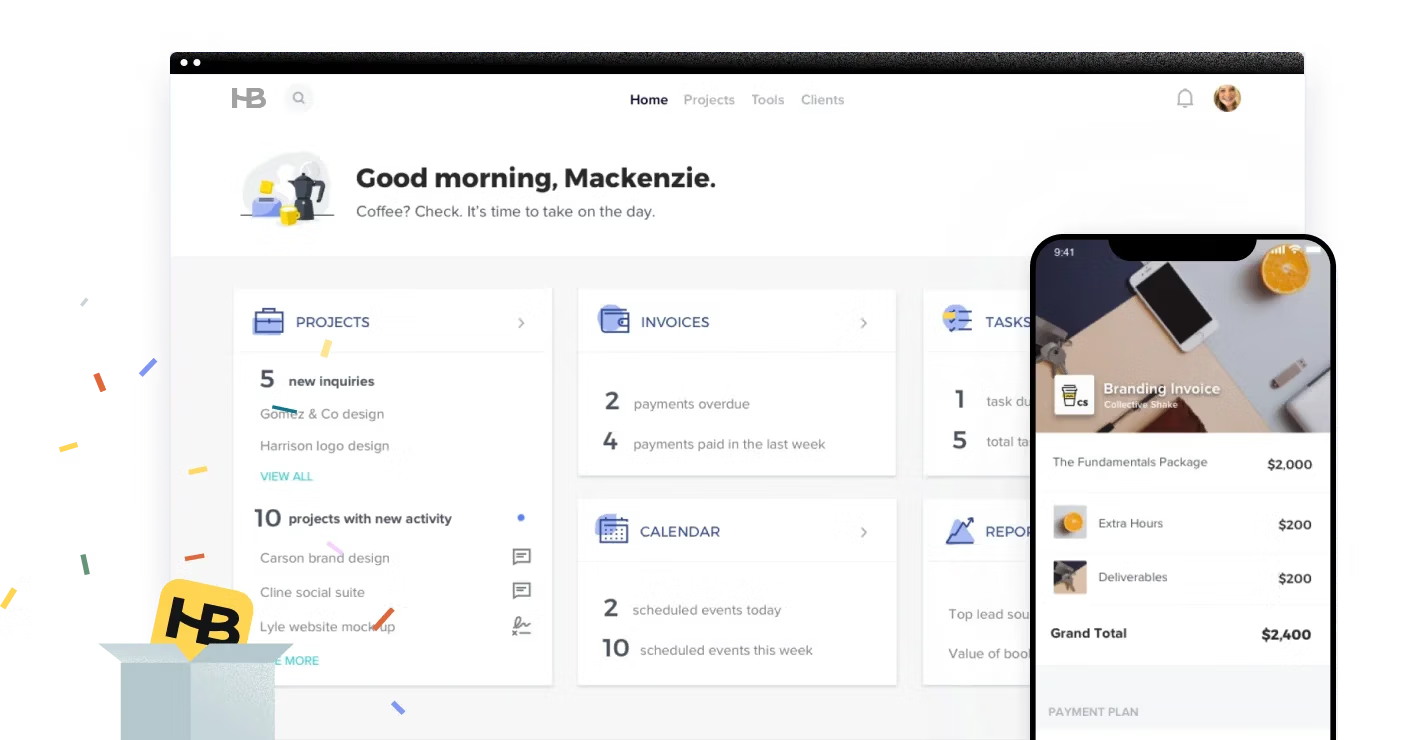
HoneyBook is a proposal tool for freelancers and small businesses that need more than e-signatures. While Docusign focuses solely on document execution, HoneyBook combines signatures with invoicing, scheduling, client onboarding, and lightweight project management.
HoneyBook acts as a unified client flow platform and supports the entire lifecycle from inquiry → proposal → contract → payment → delivery. For companies without a viable use case for a full CRM system, HoneyBook functions nicely as a linked set of resources and processes that can mimic much of what you'd expect from Salesforce or HubSpot—but at a fraction of the complexity and cost. It's essentially "CRM-lite" built specifically for solopreneurs and micro-businesses.
Top features
- Client management: Combines contracts, communication, scheduling, and payment tracking into one cohesive platform.
- Invoicing and payments: Send invoices, collect deposits, and automate payment reminders as soon as a contract is signed.
- Customizable templates: Create and reuse branded proposals and contract templates, reducing time spent on repetitive administrative work.
- Automation tools: Automate follow-ups, reminders, questionnaires, and onboarding steps to keep projects moving.
- Mobile app: Manage clients, contracts, invoices, and bookings on the go.
HoneyBook vs. Docusign
Docusign excels at secure, compliant e-signatures, but stops there. HoneyBook is a great option if you're a solo entrepreneur (freelancers, photographers, designers, or consultants) or micro-business (under five people) who needs a simple all-in-one client management system. If you're scaling past 10 employees though, managing complex B2B sales, or need serious CRM integration with Salesforce, you'll outgrow HoneyBook fast and the clunky interface will start feeling like a limitation rather than a feature.
| Pros | Cons |
|---|---|
Combines e-signatures with invoicing, payments, and client management | Not built for enterprise or compliance-heavy use cases |
More affordable than Docusign for small teams and solo operators | Limited CRM integrations and ecosystem is intentionally small and geared toward independents |
Streamlined client experience from proposal to payment | Fewer customization options for legal or contract templates |
G2 review
“I really like the integrated contact form and the ease of getting clients to read and review their proposal, sign and send payments. I also like that it's connected with my wedding community and that I can use it to connect with other vendors.” - Josephine S.
Pricing
- Starter: $29/month (billed annually)
- Essentials: $49/month (billed annually)
- Premium: $109/month (billed annually)
4. signNow: Best on a budget
G2 Rating: 4.6/5
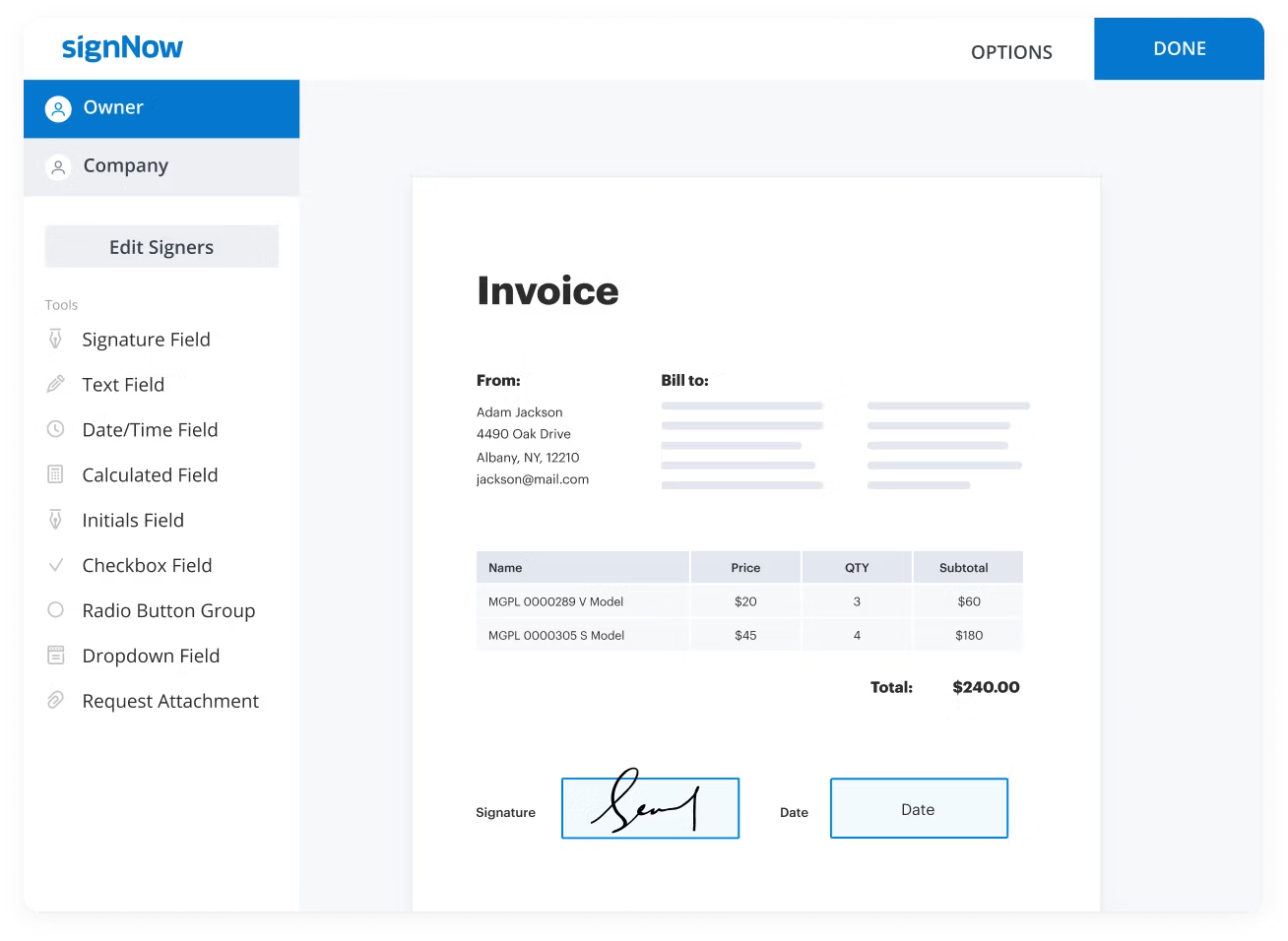
signNow is one of the strongest low-cost alternatives to Docusign. Its pricing is significantly cheaper at every tier, with the Enterprise plan costing just $30 per user/month, making it attractive for small teams or cost-conscious organizations that need reliable e-signature functionality without the premium features Docusign bundles into higher-tier plans.
The core experience is straightforward: upload a document, add fillable fields, define signers, and send. For teams that simply need compliant signatures and basic automation, signNow delivers solid value at a fraction of Docusign's cost. Think of it as the budget airline of e-signatures: you get from point A to point B reliably, just without the extras.
Top features
- Bulk sending: Send one document to many recipients simultaneously—ideal for HR, compliance, or standardized agreements.
- Advanced security: Includes multi-factor authentication and HIPAA compliance for organizations with heightened data requirements.
- Mobile access: Full-featured mobile apps for sending, signing, and managing documents on the go.
- Template creation: Save reusable templates for frequently used contracts or forms.
- Team collaboration: Manage shared templates, documents, and permissions across teams.
signNow vs. Docusign
signNow delivers the essential e-signature capabilities that Docusign is known for, but at a fraction of the cost. It’s an excellent fit for teams with simple, repetitive signing workflows and minimal need for collaboration or advanced document creation.
At $8/month, it's hard to beat for basic signing workflows. But the moment you want to edit a contract mid-negotiation, you'll hit signNow's walls hard. The Site License pricing model that charges $1.50 per invite completely destroys the budget value proposition if you're sending more than 20 documents monthly.
| Pros | Cons |
|---|---|
More affordable than Docusign, especially for high-volume signing | Less polished UI and overall product experience |
Suitable for teams that need scalable e-signatures without enterprise cost | Lack of collaborative editing, dynamic content, or proposal-building features |
Supports advanced features like bulk sending and templates Flexible API and integrations for automation | Weaker ecosystem and fewer native integrations |
G2 review
“Easy, intuitive tool to sign, amend and email soft documents. We've been on the digital signature train for years, and SignNow has been indispensable for everything from contracts to forms to health records and the like. We couldn't do without it, and resubscribe year after year.” - Diane S.
Pricing
- Business: $8/month (billed annually)
- Business Premium: $15/month (billed annually)
- Enterprise: $30/month (billed annually)
5. PandaDoc: Best for legal teams
G2 Rating: 4.7/5
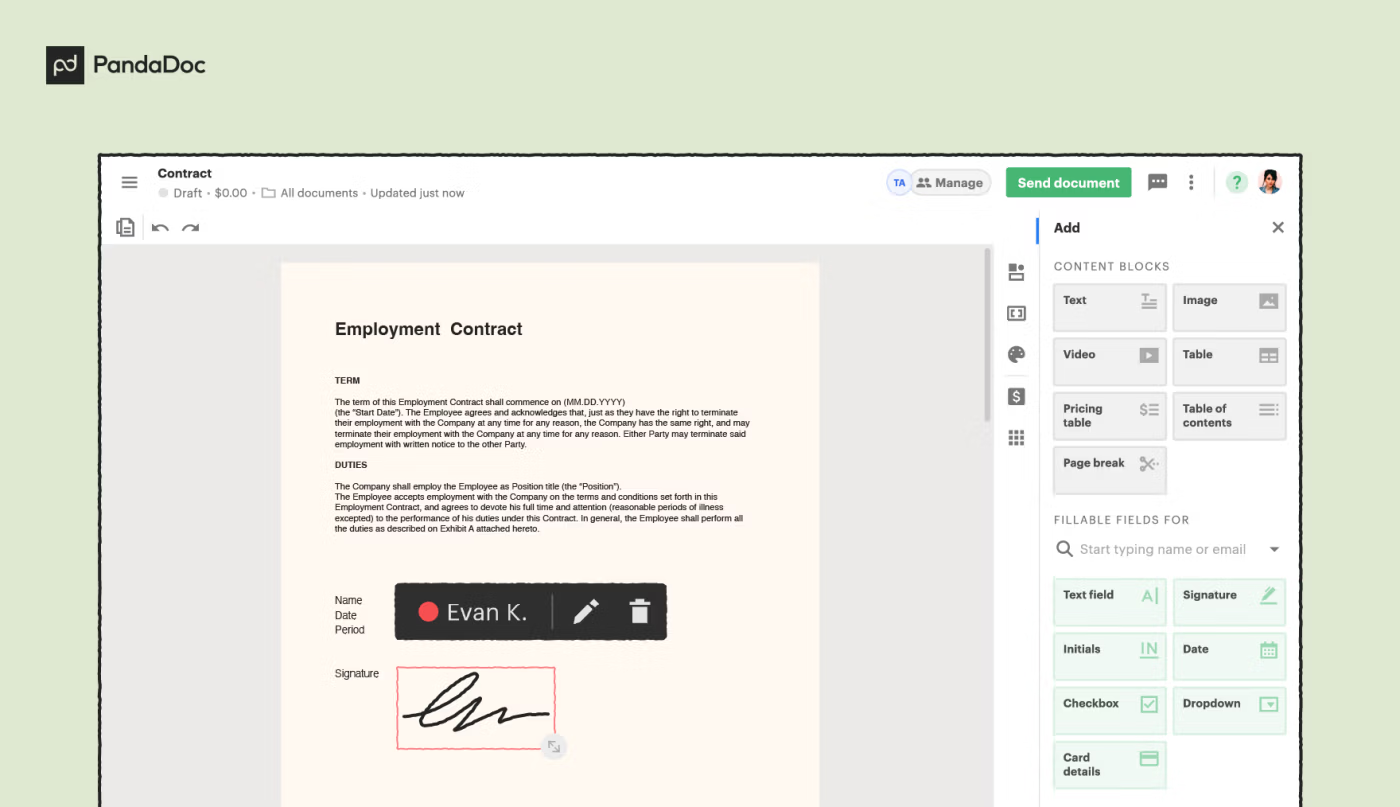
PandaDoc is a document workflow platform built for teams that manage complex agreements. Legal teams, procurement groups, and compliance-heavy organizations value PandaDoc for its structured document creation, invoice workflows, audit trails, and collaborative editing environment. Compared to Docusign’s more signature-centric focus, PandaDoc offers a wider set of tools for crafting, redlining, approving, and managing contracts end to end.
You can manage the entire pre-signature negotiation process with comment threads, approval chains, and clause libraries. For legal departments tired of emailing Word docs back and forth before finally uploading to Docusign, PandaDoc consolidates that entire workflow.
Note: If you're also evaluating other options, see our comparison of PandaDoc alternatives.
Top features
- Document creation: Build contracts and proposals directly in the editor.
- Legally binding eSignatures: Included in all plans, with compliance across ESIGN and UETA.
- Advanced analytics: Track time on page, open rates, drop-off points, and stakeholder engagement.
- CRM + workflow integrations: Deep integrations with HubSpot, Salesforce, and Pipedrive.
- Content library: Store clauses, templates, and approved contract language for consistent legal documents.
- Collaboration tools: Real-time comments, version history, and approval flows support internal legal review.
PandaDoc vs. Docusign
While Docusign specializes in signatures and simple workflows, PandaDoc is designed for teams managing full contract lifecycles. It shines when you need to collaborate with counterparties on contract language, track which clauses cause negotiation delays, and maintain a library of pre-approved legal language. But if you're a small business just collecting simple client signatures, the $19/month entry price gets you very little—most useful features are locked behind the $49/month Business tier.
| Pros | Cons |
|---|---|
Combines proposals, quotes, and e-signatures in one platform | Less focused on pure contract execution than Docusign |
Strong document automation and reusable templates | Can feel heavy if you only need basic e-signatures |
Better suited for sales and revenue teams than Docusign | Compliance depth not as strong for regulated industries |
G2 review
“I love how PandaDoc is really easy to use and straightforward. Whether I'm editing documents, placing things for signature, or sending, I haven't encountered any issues. The credits it provides for free are really appreciated and generous.” - Julia G.
Pricing
- Essentials: $19/month per user
- Business: $49/month per user
- Enterprise: Custom pricing
6. Dropbox Sign: Best for small teams
G2 Rating: 4.7/5
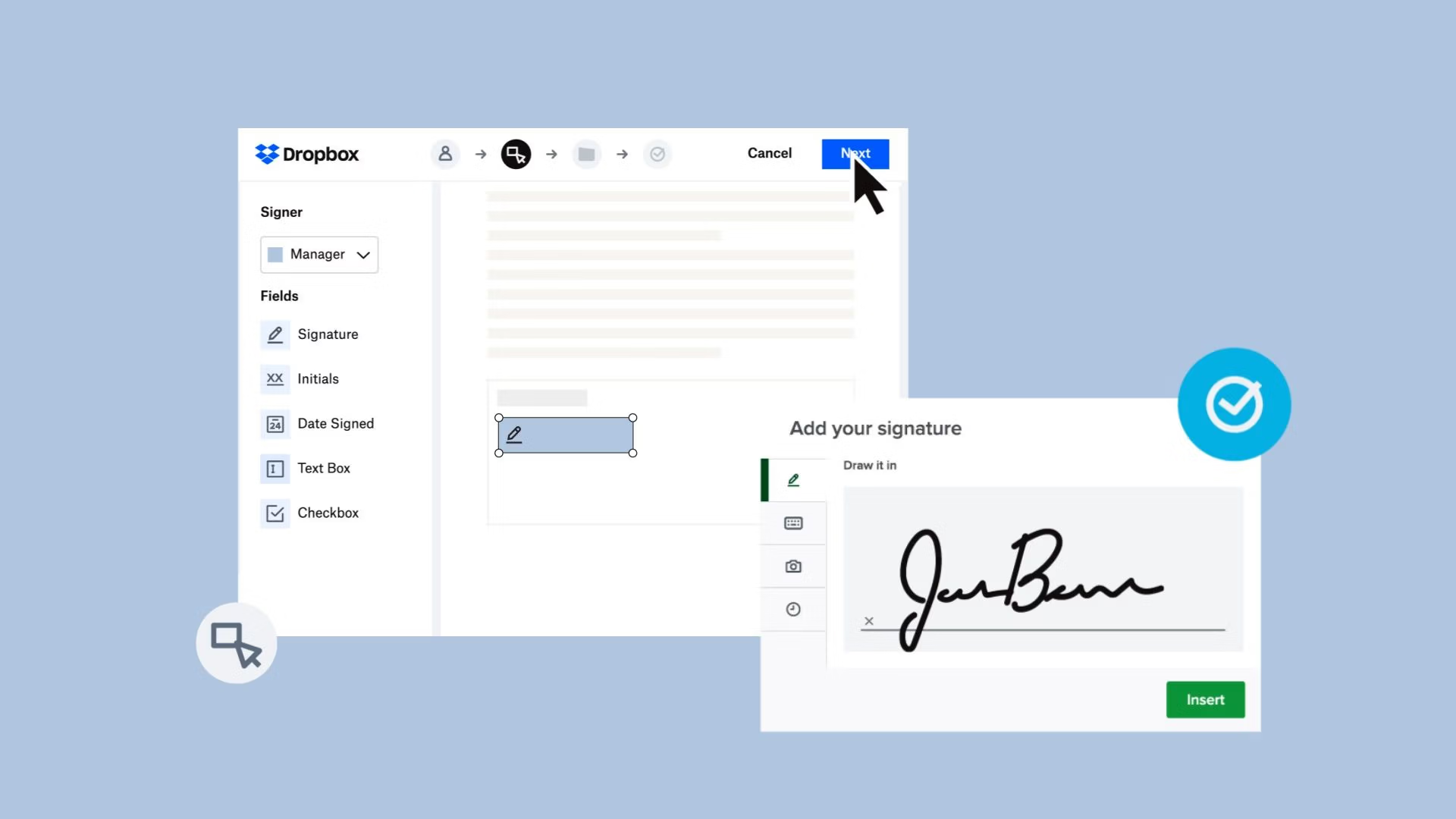
Dropbox Sign (formerly HelloSign) is a lightweight, intuitive alternative to Docusign designed for small teams and individuals who want simple, reliable eSignatures without heavy configuration. It is especially appealing for teams already using Dropbox for file storage, offering a frictionless way to send, sign, and store documents in one place.
The beauty of Dropbox Sign is its simplicity—it does one thing well and doesn't try to be a full contract management system or proposal builder. If your team is already living in Dropbox for file sharing and collaboration, adding signatures becomes a natural extension of your existing workflow rather than learning an entirely new platform.
Top features
- Simple, intuitive interface: Easy drag-and-drop fields make creating electronic signatures fast for any user.
- Strong security: Bank-grade encryption and detailed audit trails.
- Deep Dropbox integration: Automatically sync signed documents into shared folders.
- Mobile-friendly: Sign and send documents from any device.
- Multi-signer support: Request multiple signatures in one clean workflow.
Dropbox Sign vs. Docusign
Dropbox Sign offers a simpler, more affordable way to manage signatures, ideal for small teams and individual users. Docusign provides more enterprise-grade automation, integrations, and compliance features, but at a higher cost. But if you scale past 50 employees, need any kind of analytics beyond "was it signed?", or want to build branded proposals with interactive pricing, Dropbox Sign's simplicity becomes a limitation.
| Pros | Cons |
|---|---|
Simpler and more affordable than Docusign | Fewer advanced workflow automation options |
Clean, intuitive signing experience | Limited support for complex, multi-party approvals |
Strong integration with Dropbox and common cloud tools | Weaker enterprise controls and admin features |
G2 review
“I am a dermatologist and dietitian, and I use Dropbox Sign mostly for patient consent forms and treatment approvals. What I like most is how simple it is to use. I didn’t need any training or setup guide, I just uploaded my form, added the signature box, and sent it to the patient. The overall interface feels very clean and easy to understand, even during a busy clinic day.” - Shubham S.
Pricing
- Free
- Essentials: $15/month per user (billed annually)
- Standard: $25/month per user (billed annually)
- Premium: Custom enterprise plan (billed annually)
7. Juro: Best for end-to-end contract management
G2 Rating: 4.6/5
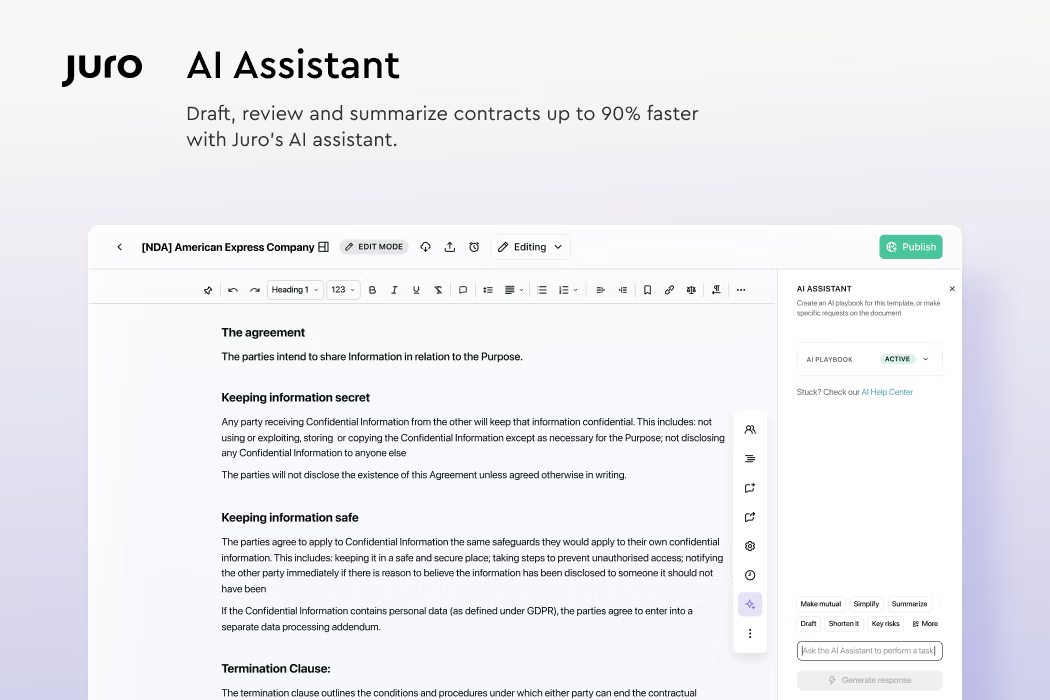
Juro is a contract lifecycle management (CLM) platform designed for legal teams and organizations that handle high volumes of complex agreements. Unlike traditional eSignature tools, Juro brings drafting, negotiation, approval, signing, storage, and analytics into a single workspace. It’s built for companies ready to move beyond PDFs and email threads into a fully structured, collaborative contract process.
What differentiates Juro is its "contracts as data" philosophy. Juro structures contracts as databases you can query, analyze, and automate. This means legal teams can answer questions like "How many contracts are up for renewal in Q2?" or "What's our standard payment term across all vendor agreements?" without manually opening hundreds of PDFs.
Top features
- Browser-native contracts: Fully interactive, mobile-friendly contracts instead of static PDFs.
- Real-time collaboration: Teams and counterparties can edit, comment, and track negotiations live.
- Custom templates and clause libraries: Standardize contract language and speed up legal drafting.
- Automated approval workflows: Route contracts through legal, finance, procurement, and leadership without manual chasing
- Analytics dashboard: Track views, signature delays, negotiation bottlenecks, and overall contract performance.
Juro vs. Docusign
Docusign is a signature-first platform. Juro is a contract-first platform. If your team simply needs to collect signatures, Docusign is more than enough. But if your organization drafts, negotiates, approves, and manages hundreds of contracts, Juro provides a structured, collaborative environment that Docusign does not offer.
If you're a 10-person startup closing a few deals per month, though, or you need beautiful client-facing proposals, Juro won't align with your needs. The pricing reflects its enterprise positioning—you're looking at $15k-$50k+ annually depending on volume. Only invest in Juro when contract volume has become a genuine operational bottleneck.
| Pros | Cons |
|---|---|
Designed for contract lifecycle management, not just signatures | More complex setup than Docusign for basic signing |
Strong collaboration and contract editing within the platform | Higher learning curve for non-legal users |
Centralized contract repository with version control | Overkill if you only need e-signatures |
G2 review
“Juro helped us to streamline the contract negotiation and signature process. It makes it easy for us when creating a document using templates and collaborative tools with other team members, and it also makes it easy for the customer to review, comment, suggest, fill out, and sign the document. The implementation is pretty much "instant" and customer support is FLAWLESS, they reply in no time and really make sure we are taking all the advantage possible from the tool.” - Nicholas C.
Pricing
- Custom pricing only (based on contract volume, workflows, and team size)
Pro tip: Complex contract management requires the same rigor as investor-grade proposals. Watch what investors look for in perfect proposals.
8. Zoho Sign: Best for Zoho Ecosystem Users
G2 Rating: 4.4/5
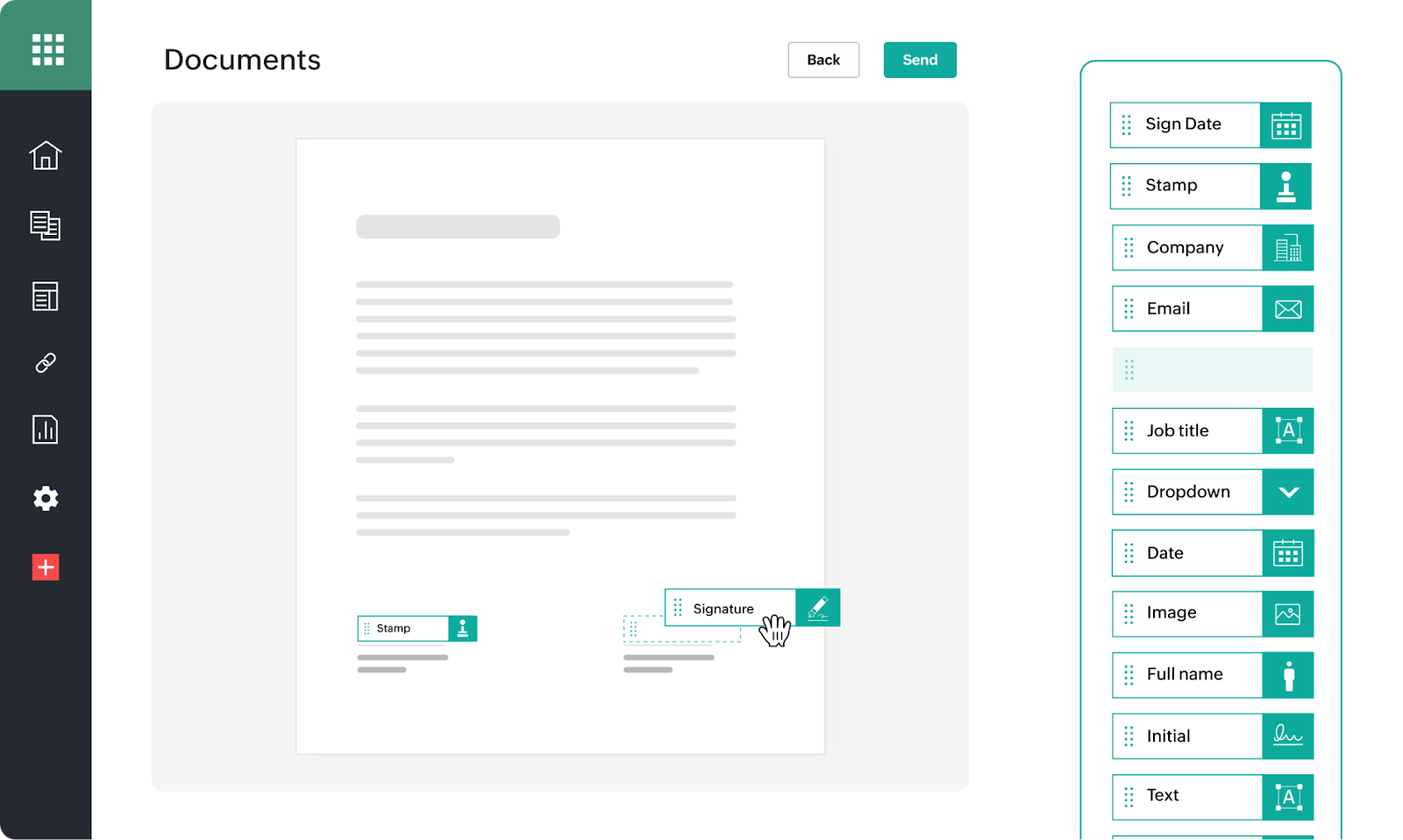
Zoho Sign is a cloud-based e-signature solution designed specifically for businesses already operating within the Zoho ecosystem. For organizations using Zoho CRM, Zoho Books, Zoho People, or other Zoho applications, Zoho Sign provides smooth native integrations that eliminate the need to jump between platforms. The platform handles standard signing workflows efficiently and includes compliance with major regulations like ESIGN, UETA, and GDPR.
Top features
- Flexible authentication options: Verify signers through email OTP, SMS OTP, government ID verification, knowledge-based authentication (KBA), and EU eID systems.
- Workflow automation: Set signing order, create approval chains, send automatic reminders, and configure conditional fields for complex document workflows.
- SignForms: Create self-service signing workflows through secure URLs that can be shared via messaging services or embedded on websites.
- Blockchain timestamping: Add an extra layer of document verification by publicly establishing signer accountability through blockchain technology for enhanced security and auditability.
Zoho Sign vs. Docusign
Zoho Sign makes the most sense if you're already using multiple Zoho products and want to avoid paying for yet another standalone tool. However, Zoho Sign requires more setup and configuration than plug-and-play alternatives. If you're not in the Zoho ecosystem, the integration advantage disappears entirely and you're left with a basic e-signature tool that doesn't justify choosing it over more feature-rich alternatives.
| Pros | Cons |
|---|---|
Offers a simple, intuitive, and user-friendly interface compared to Docusign | Lacks key features and has a less adjustable UI compared to Docusign's robust options |
Seamless integrations within the Zoho ecosystem, saving time over Docusign's broader but complex setup | Lack of options and fonts for signing, as current limitations hinder personalization in Zoho Sign |
More affordable than Docusign, especially for small businesses and with its extensive suite |
G2 review
“Zoho Sign is ideal for keeping all important documents in one place, especially those that need to be signed. Additionally, I like that it preserves the integrity of the documents by allowing the locking of signed documents to prevent any attempt to copy or edit their content without authorization. Lastly, I like the "drag and drop" process for placing text boxes, signatures, or initials; it is very intuitive.” - Verified user
Pricing
- Free: $0/month (single user, 5 envelopes per month)
- Standard: $10/user/month (billed annually) or $12/user/month (billed monthly) - 25 envelopes per user per month
- Professional: $16/user/month (billed annually) or $20/user/month (billed monthly) - Unlimited envelopes
- Enterprise: $22/user/month (billed annually) or $28/user/month (billed monthly) - Advanced features including bulk send, APIs, webhooks
- API Plan: Pay per use with Zoho Sign credits (500 credits minimum at $0.50 per credit)
9. OneSpan Sign: Best for Regulated Industries and Enterprise Security
G2 Rating: 4.7/5
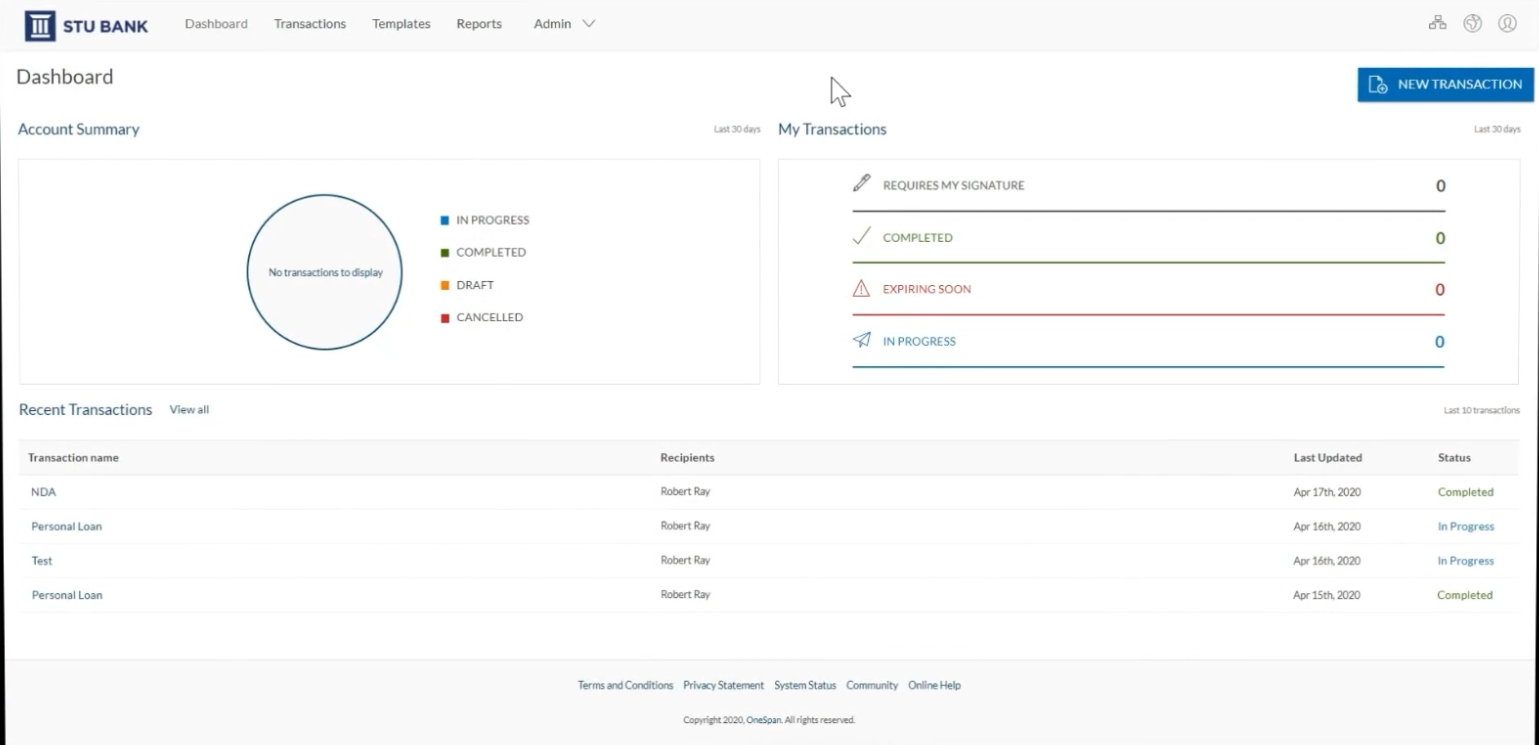
OneSpan Sign is an enterprise e-signature platform built for organizations that can't compromise on security. Trusted by companies like NASA and RBC, OneSpan is best for high-stakes transactions in financial services, insurance, healthcare, and government.
It comes with a comprehensive security infrastructure—from passwordless authentication and identity verification to tamper-evident digital signatures and fraud prevention—making it the go-to choice when regulatory compliance and customer data protection are non-negotiable.
Top features
- Enterprise-grade security: Passwordless authentication, multi-factor verification, biometric matching, AES 256-bit encryption, and tamper-evident digital signatures that visibly invalidate if documents are altered between signers.
- Identity verification: Verify unknown signers remotely using government-issued IDs (driver's license, passport, national ID) with real-time biometric selfie comparison and liveness detection.
- Smart Forms: Convert static paper forms into intelligent, mobile-optimized digital experiences with conditional logic, step-by-step guidance, and automated branching based on responses.
- Multi-channel notifications: Reach signers through their preferred channel with SMS or email notifications to accelerate document completion.
- Remote notarization: Add legally compliant digital notarization with identity verification, secure video conferencing, eNotary seal uploads, and electronic journaling through OneSpan Notary.
OneSpan Sign vs. Docusign
OneSpan Sign is the better choice when security and compliance aren't optional. Banks processing loans, insurers handling policies, and healthcare providers managing patient consent need OneSpan's tamper-evident signatures, flexible authentication methods, and deployment options that Docusign can't match.
The tradeoff is complexity. Small businesses wanting simple signatures without complex compliance needs should look elsewhere.
| Pros | Cons |
|---|---|
Provides robust security like AI-driven biometrics, tamper-sealing, and knowledge-based authentication for high-risk industries | User interface lags behind competitors like Docusign in intuitiveness and mobile responsiveness |
Supports flexible deployment (cloud or on-premises) with seamless integrations like Salesforce and strong API capabilities . | Higher cost and less widespread adoption compared to established tools |
Offers high transaction limits, up to 10x more envelopes than Docusign without overages, suiting high-volume needs |
G2 review
“My favorite thing about OneSpan Sign is that it is security focused. Because sensitive contracts are involved, the platform provides top notch encryption to protect documents and make sure that signatures are legally valid. The multi factor authentication principle adds one more security level for only allowed persons to sign a document or to access it. I feel comfortable when I’m handling important agreements, because of this security.” - Kaleb T.
Pricing
Volume-based custom pricing available upon request.
Choosing a Docusign alternative
Match your e-signature platform to three factors: how many deals you close annually, whether you need CRM integration, and your budget.
- For teams closing fewer than 100 deals annually with basic signing needs, budget-focused options like signNow ($8/month) deliver core functionality without premium costs.
- For sales teams exceeding 100 deals yearly, prioritize platforms offering unlimited sends, native CRM integration, and real-time analytics. Docusign's envelope caps and $40/month requirement for Salesforce/HubSpot connectivity create scaling bottlenecks.
- For enterprise sales organizations managing complex proposals with interactive pricing, payment collection, and detailed engagement tracking, Qwilr ($35/month) combines legally compliant e-signatures with web-based proposals that PDF-based platforms can't match to simplify closing sales deals.
See how Qwilr streamlines proposals and signatures in one platform—start your 14-day free trial.
.
About the author

Dan Lever|Brand Consultant and Copywriter
Dan Lever is an experienced brand consultant and copywriter. He brings over 7 years experience in marketing and sales development, across a range of industries including B2B SaaS, third sector and higher education.
